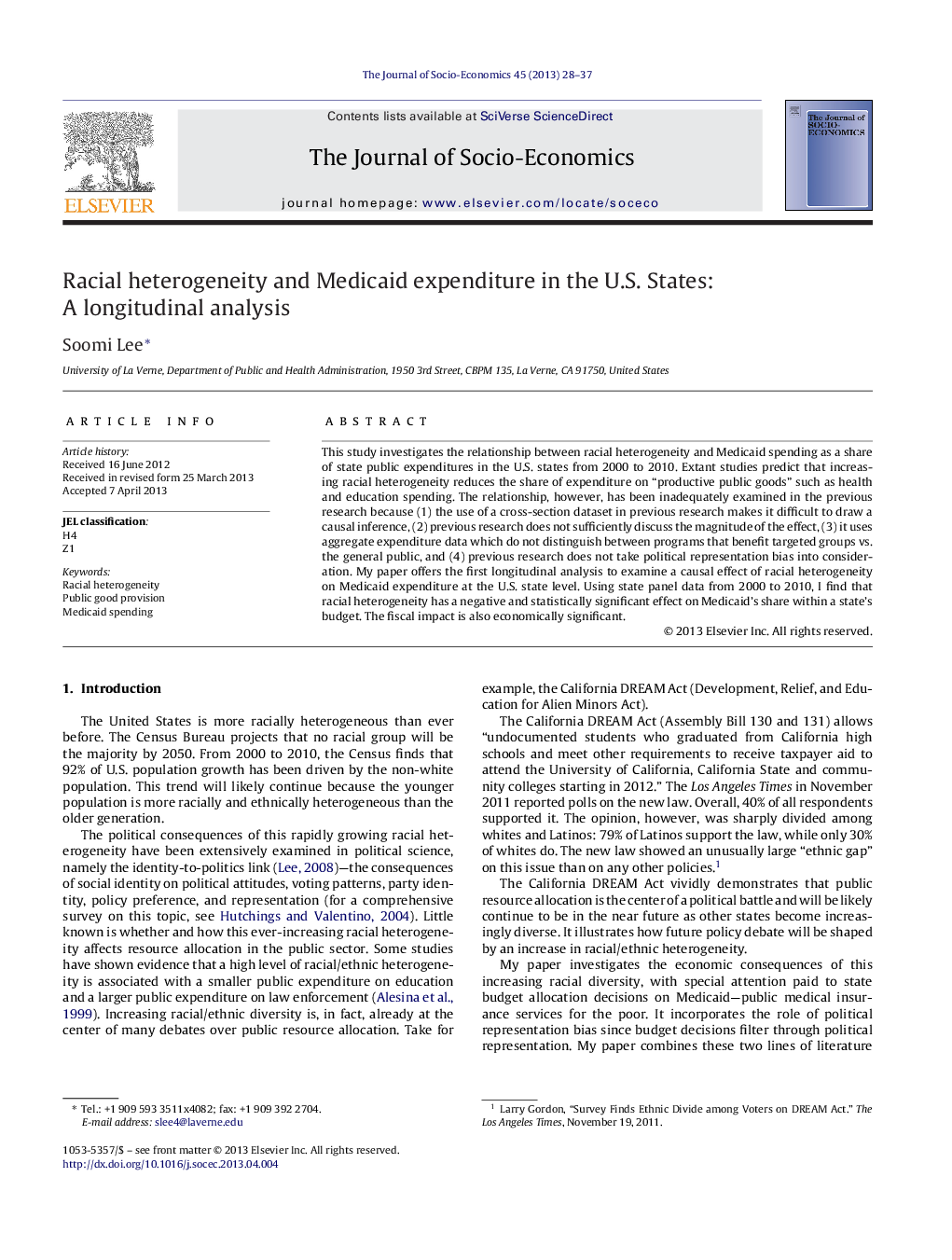| Article ID | Journal | Published Year | Pages | File Type |
|---|---|---|---|---|
| 970612 | The Journal of Socio-Economics | 2013 | 10 Pages |
This study investigates the relationship between racial heterogeneity and Medicaid spending as a share of state public expenditures in the U.S. states from 2000 to 2010. Extant studies predict that increasing racial heterogeneity reduces the share of expenditure on “productive public goods” such as health and education spending. The relationship, however, has been inadequately examined in the previous research because (1) the use of a cross-section dataset in previous research makes it difficult to draw a causal inference, (2) previous research does not sufficiently discuss the magnitude of the effect, (3) it uses aggregate expenditure data which do not distinguish between programs that benefit targeted groups vs. the general public, and (4) previous research does not take political representation bias into consideration. My paper offers the first longitudinal analysis to examine a causal effect of racial heterogeneity on Medicaid expenditure at the U.S. state level. Using state panel data from 2000 to 2010, I find that racial heterogeneity has a negative and statistically significant effect on Medicaid's share within a state's budget. The fiscal impact is also economically significant.
